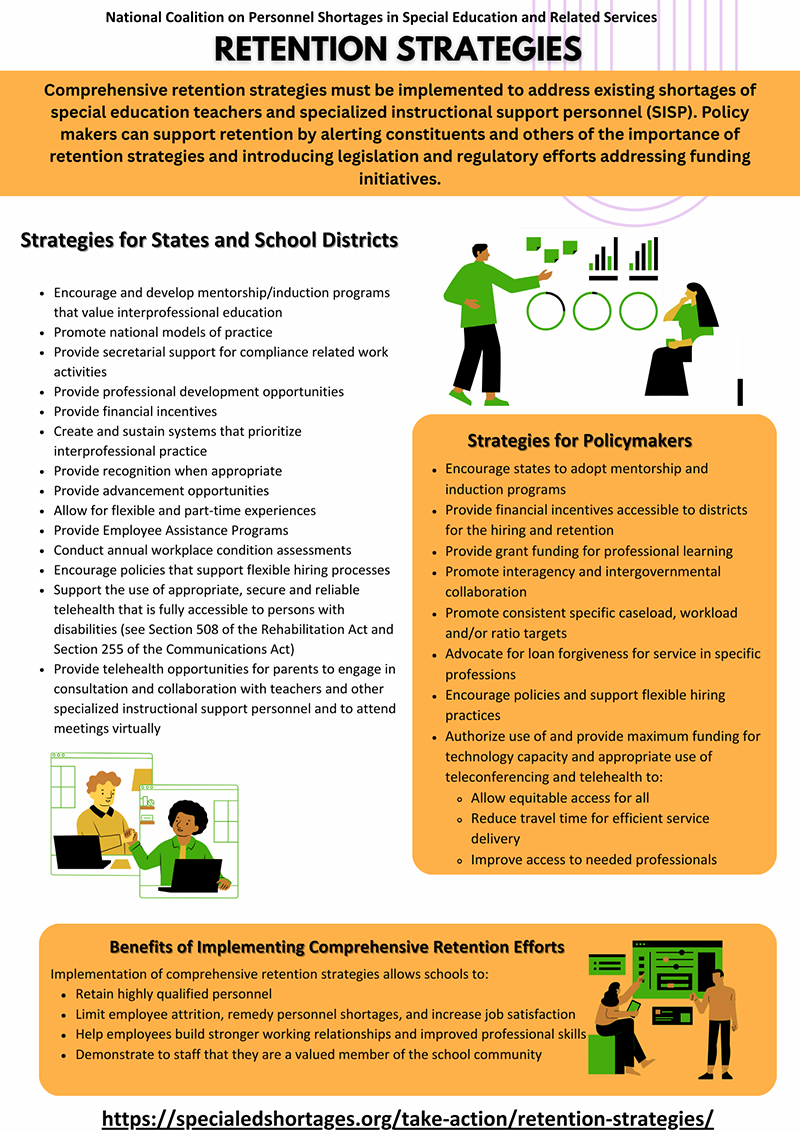Comprehensive retention strategies must be implemented to address existing shortages of special education teachers and specialized instructional support personnel (SISP). Policy makers can support retention by alerting constituents and others of the importance of retention strategies and introducing legislation and regulatory efforts addressing funding initiatives.
Implementation of comprehensive retention strategies by policymakers, states and school districts allows schools to:
- Retain highly qualified personnel
- Limit employee attrition and remedy personnel shortages
- Increase SISP job satisfaction
- Help employees build stronger working relationships and improved professional skills
- Demonstrate to staff that they are a valued member of the school community

More Information on Retention
- Shortages in School Psychology Resource Guide (National Association of School Psychologists)
- Recruiting and Retaining Qualified School-Based SLPs (American Speech-Language-Hearing Association)
- Educator Quality: Recruitment & Retention (Learning Policy Institute)
- Special Education & Related Service Staff Shortage (Ohio Association of Pupil Services Administrators)